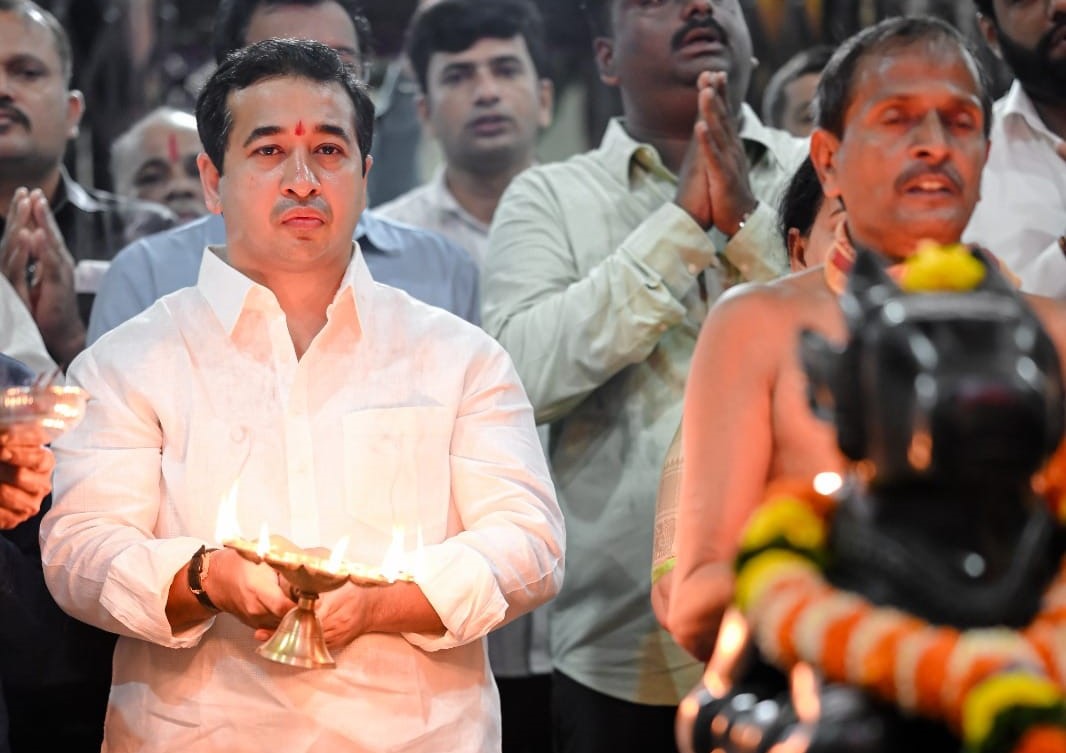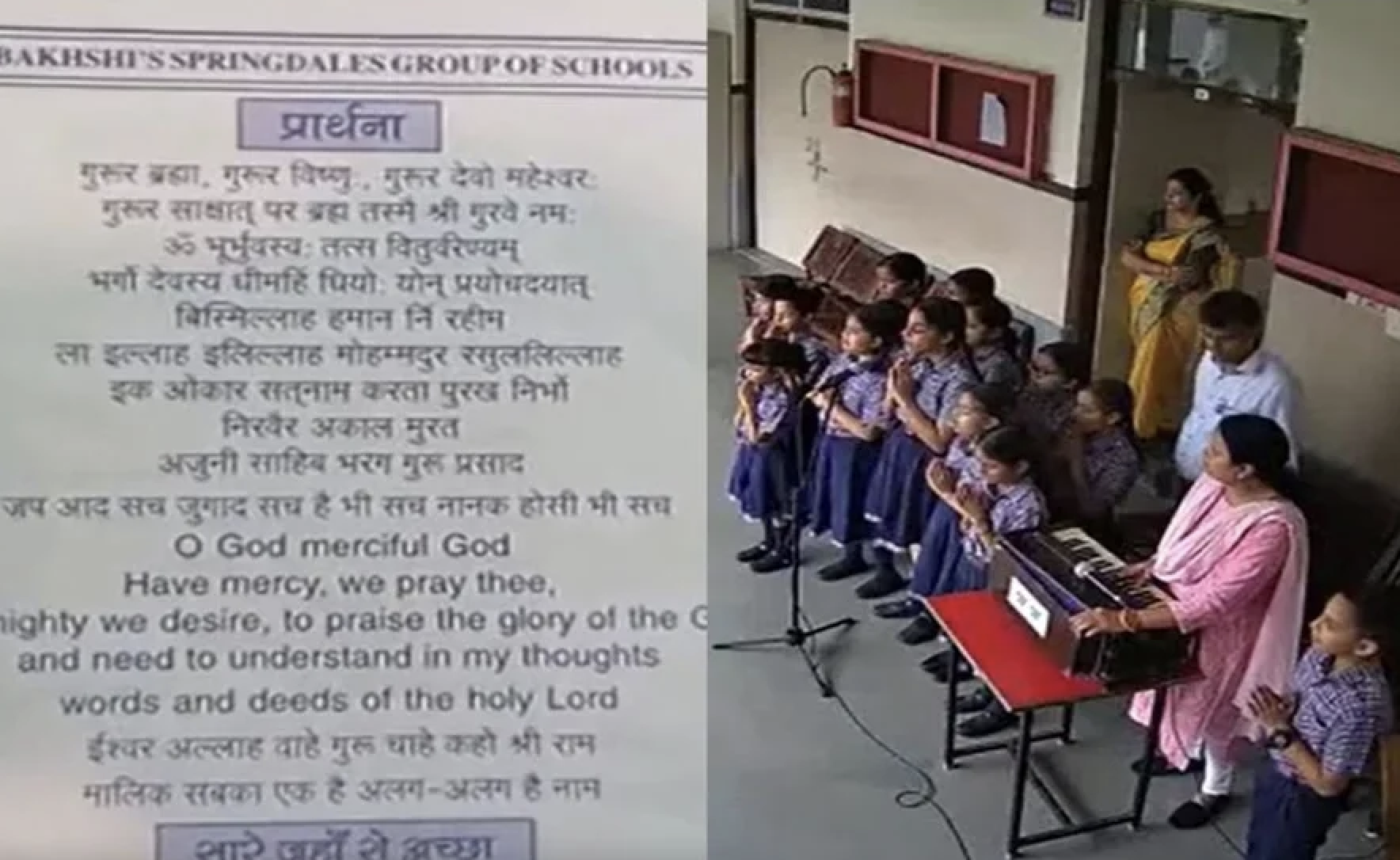
By Sangeeta Barooah Pisharoty
New Delhi: After a week of uncertainty, Assam has a new chief minister – Himanta Biswa Sarma.
This decision of the Bharatiya Janata Party (BJP) was reached after a protracted spell of dilly-dallying which included the theatre of hectic discussion – whether to pick the incumbent chief minister Sarbananda Sonowal and the claimant to the seat, Sarma – shifting to New Delhi for a day on May 8 before it was tossed back to a meeting of the party’s MLAs, and its alliance partners, on May 9 to zero in on the name for the top post.
In that meeting held at Dispur in the presence of central leaders B.L. Santosh, Baijayant Panda, Narendra Singh Tomar and Arun Singh, the outgoing chief minister Sonowal, maintaining the propriety of the process, proposed Sarma’s name which was backed by the MLAs, thus formalising Sarma’s elevation to the top post.
Sarma is now all set to become the state’s 15th chief minister and the Bharatiya Janata Party’s (BJP) second in the state.
The May 9 selection of Sarma is a significant development in Assam politics for several reasons.
BJP shifts gears in Assam
One, much as Sarma is presented as the claimant to the top post by dint of his hard work, it can’t be overlooked that the BJP, in its second term in the state as the leading partner of the NDA government, has shifted the gears to openly become a Hindutva party. It doesn’t quite mind anymore baring open its true politics in a state so far widely considered to be hinged on sub-nationalist or jatiotabadi sentiments more than the Hindutva ideals.
This is significant because the party is reading the results – post anti-CAA protests in Assam – as public approval to communally divide the primary clause of the Assam Accord, and grant citizenship to all non-Muslim Bangladeshis having come to the state till December 2019.
In the rejection of Sonowal today, it must be read that the BJP has formally discarded from within itself the sheen of sub-regionalism it thought it needed in Assam. Sarma is no jatiotabadi leader. What comes across is, for the time being, the top leaders seem to think that a handful of allies perched on sub-regionalism sentiments (read Asom Gana Parishad and UPPL-Liberal) will do till the BJP is successful in extending its footprints further in the state by swallowing their voter base as well.
In 2016 though, in a rare move, the party had to project Sonowal as the chief ministerial face to topple 15 years of Tarun Gogoi’s reign. Gogoi, even though a Congress chief minister, had remained in power by playing more of the regional card than being a mere representative of a national party. The BJP understood that it had to sprinkle its Hindutva politics with jatiotabadi sentiments in order to trip him; to reach out to voters – mainly in upper Assam, the Assamese heartland – with a strong jatiotabadi face.
Sonowal – as a former president of All Assam Students Union (AASU) who also had earned the moniker of jatiyo nayak (the community’s hero) for successfully contesting in the Supreme Court the Congress-implemented Illegal Migrant (Determination by Tribunal) Act in the state – was the weapon the BJP desperately needed to scratch the raw sentiments in Assamese voters against ‘illegal Bangladeshis’, to neutralise a veteran leader like Gogoi. It needed none other than Sonowal, also a young leader unlike Gogoi, to take to people the narrative that Congress had long ‘sheltered’ the ‘Bangladeshis’ in the state, and a powerful leader like Narendra Modi at the Centre and his pick (Sonowal in the state) would only be able to provide the people a xuddha (correct) updated National Register of Citizens (NRC) – a panacea to all their jatio (community) issues.
A large chunk of voters fell for it. The strategy of mixing the BJP’s slogan in the mainland, ‘Jai Shri Ram’, with the sub-nationalist ‘Joi Aai Axom’ (Hail Mother Assam) worked wonders. BJP, for the first time, pocketed 60 seats on its own, four short of simple majority in the 126-member house. As promised, Sonowal rose to be the state’s chief minister.
In the last five years, though rabid BJP-RSS leaders and cadres in the state had tried multiple times to create communal tensions, Sonowal, as the home minister, ensured that none could be accelerated, thus sending out a clear message to the public that his BJP government is still not an utterly Hindutva regime being spotted elsewhere. While he continued to speak of the need for unity of people residing in the pahar bhoyam, Barak Brahmaputra (Hills and valleys, in the plains of rivers Barak and Brahmaputra) of the state, the man who had shifted to the BJP having burnt all hopes of becoming a chief minister in Congress – Sarma – meanwhile worked single-mindedly to reach his goal.
Every move of Sarma was amplified through a dedicated social media team and friendly local journalists. Like in the run-up to the 2016 polls, the incumbent chief minister Tarun Gogoi was ridiculed through an organised social and traditional media campaign for often rejecting developments that he didn’t consider significant with the phrase baad diya he (leave it!), a calibrated attack on the incumbent chief minister Sonowal too was soon launched for often stating the line Pahar bhoyam…
Sarma could project himself to be the worthy contender because the Delhi leaders allowed him to from the outset of Sonowal’s term.
After the updated NRC was published, Sarma harnessed to his benefit the anger expressed by the Jatiotabadi factions on the 20 lakh number kept out of it as ‘too less’, stating that he rejected it as many ‘Bangladeshis’ had entered their name in it and a correct NRC would soon be made. By then, Sarma had also publicly stated that he was all for flipping back Assam’s citizenship cut-off year to 1951 than 1971 which was decided by the Assam Accord. Sonowal as a former leader of AASU, the signatory to the Accord, couldn’t have done that. RSS-BJP has never supported the Accord simply because it doesn’t differentiate between a Hindu and a Muslim Bangladeshi. Sarma was catering to that sentiment.
All that while, Sonowal banked only on the goodwill of the central bosses, never remained accessible to the media unlike Sarma (That he never runs away from the media is his greatest asset). His utterly incompetent public outreach team too silently watched the proceedings, so much so that in coming times, while Sarma succeeded in creating for himself a positive public image as a hardworking minister, an out-an-out doer, the man found never wanting in need, especially during the first COVID-19 crisis, so also pandering to the Hindutva brigade, Sonowal looked like an incompetent fool caught in his ivory tower, untouched by any development, in comparison.
Sarma also continued to send feelers to the top bosses to choose him for the chief ministerial post by taking the sole credit for delivering to the party the highest number of Lok Sabha seats, ever, by the BJP from the state, so also doing the clever math to ensure that he is viewed by New Delhi as the only strategist who can help the BJP touch the existing tally of 60 seats in the 2021 assembly polls too even after the vociferous anti-CAA protests in the state.
On May 2, the party lost a few seats in the elections but he ensured the number didn’t slip below 60, achieved by importing more winning candidates from Congress, taking advantage of division of votes between Congress and the newly formed regional outfits, while simultaneously flogging the bogey of Congress being a ‘Bangladeshi’ party to the upper Assam voters for having formally tied up with Maulana Badaruddin Ajmal’s All India United Democratic Front (AIUDF). The Congress leadership, by taking such a decision, had given away many seats to the BJP on a platter in upper Assam, while helping AIUDF also to consolidate itself as a Muslim party in the state. Several Muslims who wouldn’t vote for the AIUDF, were in a way forced by the Congress in these elections to choose that party due to the seat-sharing arrangement.
By formally joining hands with AIUDF, Congress has helped the BJP to become a Hindutva party in Assam, a danger a seasoned politician like Tarun Gogoi had understood and never formally tied up with that party formed with the backing of Jamaat Ul Islami.
Ultimately, on May 9, Sonowal, aside from counting his jatiotabadi credentials, had nothing to present to the central bosses to claim the top post.
First Brahmin chief minister
Here it must be mentioned that though Sonowal is widely looked at as a jatiotabadi leader, that he is from a tribal background and BJP had also considered that fact while elevating him to the chief ministerial post, can’t be underplayed. More so if you look at Assam’s political history since the last few decades. The only national party before BJP to have formed a government in Assam was the Congress which had long discarded the policy of choosing a Brahmin or a caste Hindu as the state chief minister. This was the reason Sarma couldn’t have become a Congress chief minister, come what may.
Veteran Congress leader Dev Kant Barua had once famously said that he would rather tie his shoe laces with the bamunor tikoni (the tuft of hair on the back of the head of a Brahmin priest), thus ensuring that however efficient an Assamese Brahmin colleague he had was not good enough to become the state chief minister. According to a Congress old timer from the state, though Assam Pradesh Congress Committee president Haren Talukdar, a caste Hindu, was once a front runner for the top post, New Delhi picked Hiteswar Saikia instead simply because he belonged to the Ahom community. Such developments in Assam’s political history only highlight that not just caste but community too has played an important role within a national party’s thinking when it came to choosing the chief minister.
The last caste Hindu chief minister was Prafulla Kumar Mahanta in the 1990s but he was viewed more as a jatiotabadi leader hailing from a regional party, the Asom Gana Parishad (AGP) than a typical caste Hindu leader from a national party. While in a regional party, such calculations may not matter, in a national party it does. In the BJP too, it does.
Sarma has no jatiotabadi credentials. That he openly pandered to the RSS as its fan boy in the last five years, at times by even donning saffron dhotis to take part in RSS-backed rituals and publicising them on social media, besides delivering communal statements, this development must also then be read as the BJP sending out a message to Assam’s voters that it doesn’t quite dither in giving them a Brahmin chief minister for the first time, unlike Congress. That the BJP leadership, after an initial indecision, finally agreed to set aside Sonowal for Sarma should also then be understood as no less a significant development by the national party after the selection of saffron clad Adityanath in 2017 in Uttar Pradesh.
There is no doubt that Sarma also had to work extra hard to discard his Congress past and convince his top bosses in the BJP-RSS in every way possible that he is fully a BJP man now. As a Congress leader campaigning against the BJP in the 2014 Lok Sabha elections which had projected Modi as the prime ministerial candidate, Sarma had said in a public rally that in Modi’s Gujarat, the blood of Muslims flow in the pipes. With such a past of personally attacking Modi, he had to also personally attack Congress top boss Rahul Gandhi relentlessly to convince Modi and the aides that he is ready to make any compromise to be wholeheartedly a BJP karyakarta and shall never return to Congress.
Finally, his strategy worked in his favour.
End of Sonowal’s political career
While Sarma’s elevation may offer enough oxygen to those leaders who have defected from the Congress to the BJP in the last few years for a political future in spite of not having an RSS background, it is not for the first time a Congress defector has become a BJP chief minister. Manipur’s N. Biren Singh is a ready example in the Northeast itself.
Though the May 9 development is being looked at by several political observers as an achievement of Sarma’s personal political goal, what must not go unheeded is the end of Sonowal’s political career, virtually. Whatever post he is assigned by the party thereafter, with a highly ambitious leader like Sarma at the helm of affairs, it would only mean a step closer to meeting his political obituary, at least in the state.
This story first appeared on thewire.in






